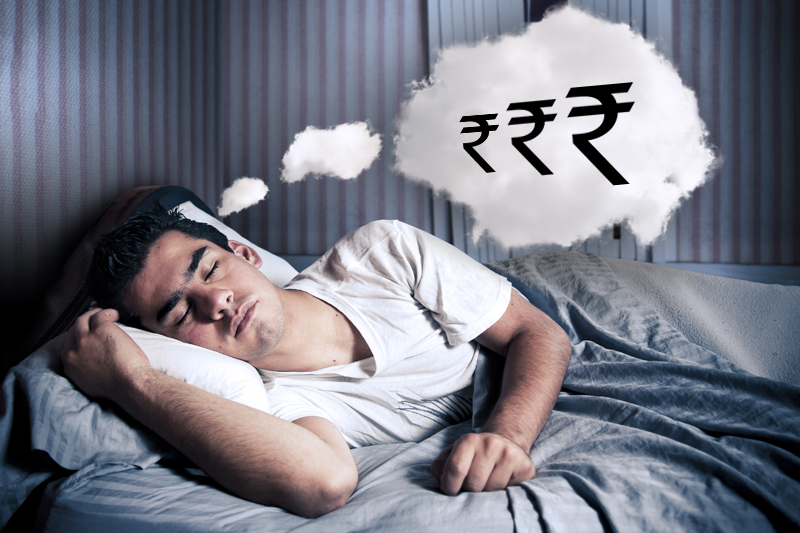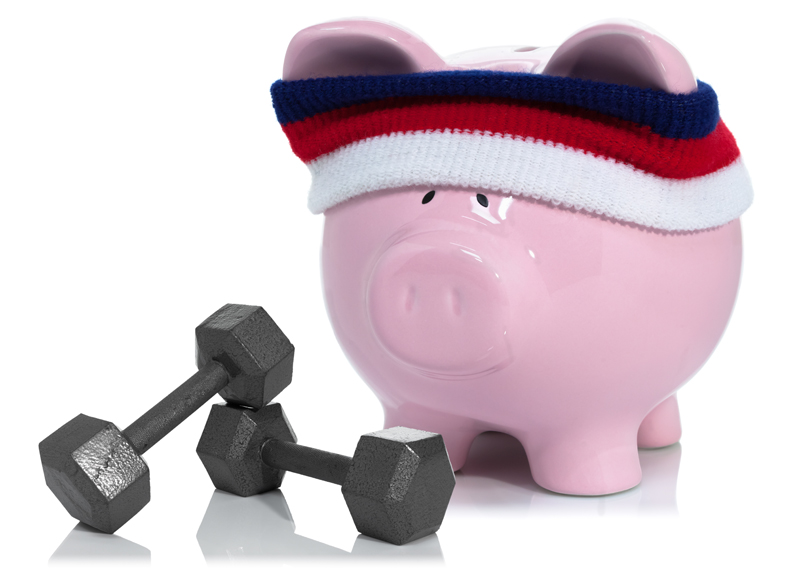You have to admit – your finances, like your health, could always be better. Thanks to bills, daily expenses, recreational activities et al, your hard earned money can evaporate rather quickly. While you may not pay much attention to it, it’s important to realise just how your health is interrelated with your wealth and how poor health can drastically impact your finances.

Some of the most common health factors which affect your finance are your sleep routine, what you eat, exercise, your stress levels, and even your state of mind. Here’s how these health factors, when studied individually, can affect your bank account:-
1. How sleep affects finance
Scientifically speaking, sleeping for just 4 to 5 hours a day can drastically affect your body and mind. Your body needs time to recover, and not giving it enough time to do so can lead to fatigue, lethargy and a lack of focus. Therefore, your ability to make appropriate decisions and evaluate work accurately is affected. All of this means more sick days and low performance at the office which can ultimately play havoc with your job security. Sick days could lead to a loss in pay, rise in medical bills and even loss of business if you have your own company.

The solution:
Sleeping for 7-8 hours a day increases your cognitive functions and boosts memory capacity. A good night’s sleep can help you be more alert at work. It also helps keep the body’s functions in check and thus, helps you stay healthy reducing your sick days, distractions at work and the feeling of listlessness, all of which could positively affect your performance. Keep that old adage in mind – early to bed, early to rise makes you healthy, wealthy and wise.
2. How diet affects finance
Today, most office-goers tend to eat out a lot. Often, this is simply due to lifestyle challenges like not having the time to cook. In today’s fast-paced world, it’s nothing new, nor can it be helped. However, not having control of what goes into the food you eat can be a problem for your health and the expenses of eating out frequently can also become a burden on your bank account.

The solution:
With prices and taxes being as high as they are, avoid spending money on restaurants and take-out. These days there are plenty of healthy and inexpensive tiffin services available in most locations. Since they’re planned meals, you get quite a few options and given that it’s home cooked, the food is nutritious too. You could also look for cooks in the vicinity of your home, to cut down on outside food expenses. You can’t go wrong with these options; after all, what’s the point in putting your bank account on a diet.
3. How exercise can affect your finance
Exercise is not an easy task but proves worthy in the long haul. Skipping a daily exercise routine may seem like the easy way out, but you will be sacrificing more than just a smaller pant size in the future. Exercising regularly helps enhance confidence and helps you stay alert to make smarter financial decisions. It can also help sharpen your memory. For some, joining the gym could also be expensive and an added financial burden to take on.

The solution:
It’s not necessary to hit the gym every day but it is important to get some exercise. Try walking for at least 20-30 minutes each day, either as part of your daily commute, at night after your meal or just a quick walk around the office premises or neighbourhood. You could even a save a little money if you could walk or cycle to work (if you live close enough, of course). Taking public transport will also give you an opportunity to walk around a little to and from your office and saves fuel costs. Fuel prices and traffic jams are high and the combination can cause your bank account to shudders.
4. How Stress Can Affect Your Finance?
Stress is rampant these days due to our speedy lifestyles and plenty of other factors. It can seriously affect your mental and physical health and be detrimental to office life as it can reduce productivity. It also takes a toll on your bank account – for one, some consider shopping (online or offline) as a way to blow off steam and then there’s food, one of man’s most ardent stress busters. These are certainly not the best options for dealing with stress.

The solution:
There are plenty of things to do to get rid of stress that doesn’t cost a thing and are immensely satisfying for your health. For starters, a good work out, run or walk is a great way to release tension; discussing your problems with your loved ones can also make you feel better; so can reading a good book. It’s important to find healthy ways to deal with your stress; spending your hard earned money is not one of them and will almost certainly lead to more stress when the bills come in.
5. How depression can affect your finance
Stress is not only a mental illness that affects health; depression is a major contender too. Research shows that if you are depressed you can end up spending more than you need. The negative emotion or sadness leads you to overspend, possibly in the hope to “buy happiness”. Depression can also be the cause of bad financial decisions and can make it harder to manage your money effectively. The University of Bristol, in the UK, found that people with debts, who are over 50, are eight times more likely to suffer mental health problems than those whose are living comfortably, and debt-free.

The solution:
A method called ‘snowball’ is what you can use for handling debt and the depression that comes with it. List all of your debt; rank it according to its highest interest rate. Tackle highest paid interest rate debt with full force. After you’re done with that, work your way down the list. Continue until you become debt free. Irrespective, it’s vital that you also lean on your family and friends to help you handle depression better. Find ways to keep yourself busy; get a hobby and void medication and such to help you cope. You can consider a health insurance and way to stay active that can help you earn rewards.
It’s vital that you’re physically and mentally healthy in order to deal with your financial problems. These are simple methods to help you cope and avoid both health and monetary problems from coming up in your later years.





 1800-270-7000
1800-270-7000









Thanks Vijay Diwakar , Lovely share. This was a excellent article. It helped me to look into myself and how I can change some of my poor habits. I have some very bad financial songstress, but this article helped me to release my. The energy that I spend on worrying.
Thanks and Regards
Teresa B
” Greetings! Very useful advice within this article! It is the little changes which will make the largest changes Thanks for sharing! ”
Like!! I blog quite often and I genuinely thank you for your information. The article has truly peaked my interest.
Thanks again for the article.Thanks Again. Fantastic.
I’d have to grant with you on this. Which is not something I usually do! I really like reading a post that will make people think. Also, thanks for allowing me to comment!